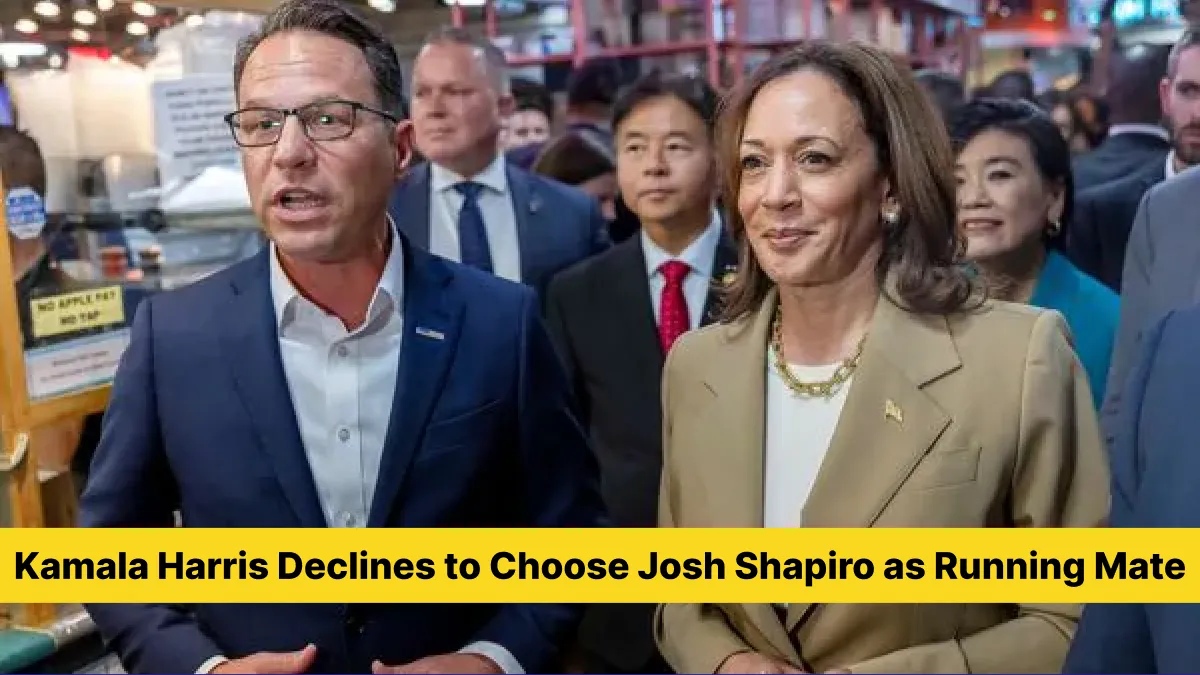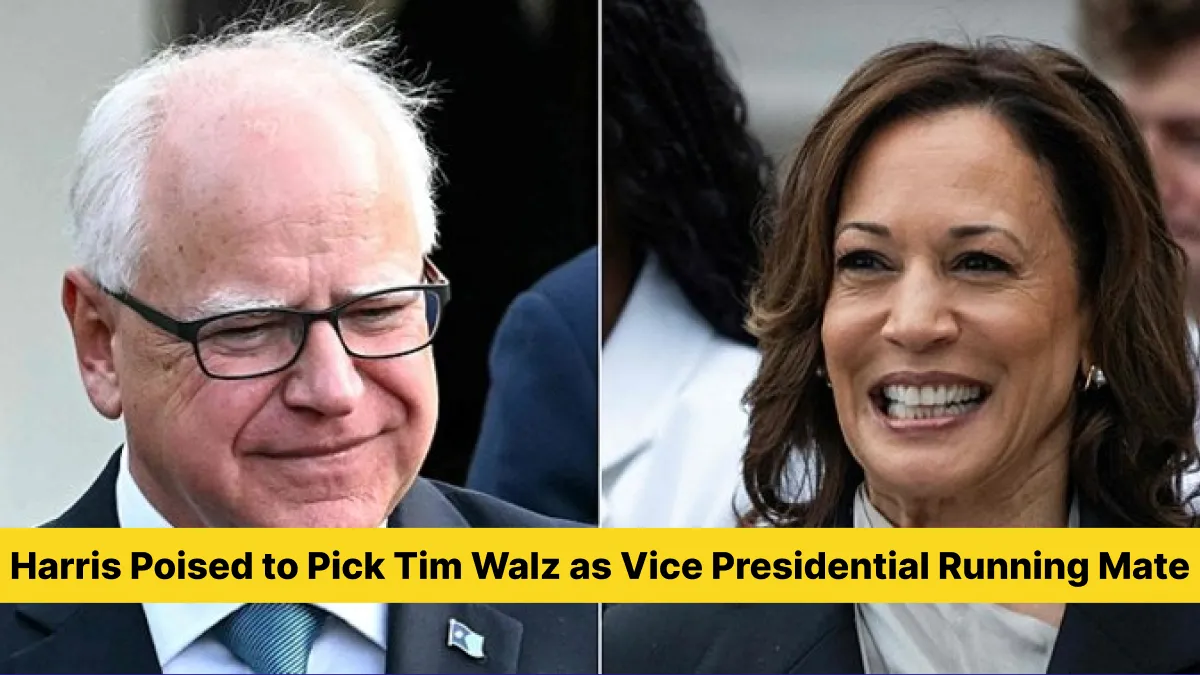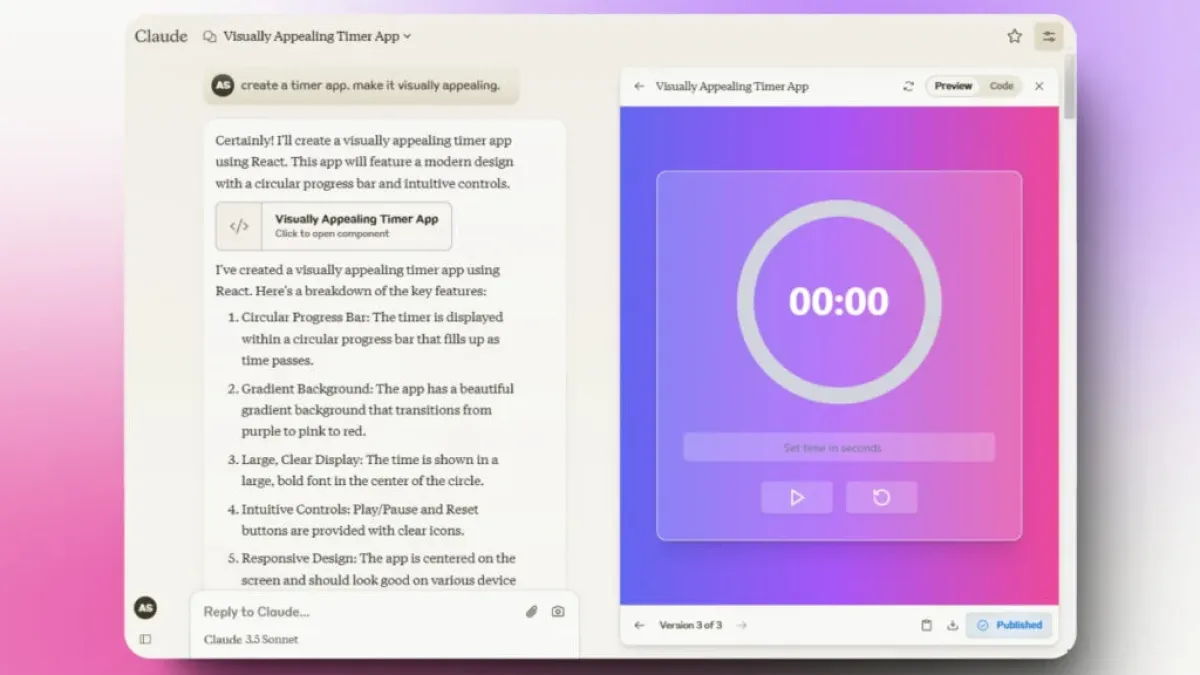In a recent political development, Vice President Kamala Harris has announced that she will not be selecting Pennsylvania Governor Josh Shapiro as her running mate for the upcoming 2024 presidential election. This decision has sparked a lot of discussion and speculation in the political arena. While Harris’s choice is a significant move, it has raised many questions about the factors influencing her decision.
Background on Kamala Harris
Kamala Harris, the first female, first Black, and first South Asian Vice President of the United States, has been a prominent figure in American politics. Her background as a former California Attorney General and U.S. Senator has given her a broad perspective on national issues. Since assuming office, she has focused on key issues like immigration, voting rights, and economic equity.
Who is Josh Shapiro?
Josh Shapiro is the current Governor of Pennsylvania. He has a strong political background, having served as Pennsylvania’s Attorney General before becoming governor. Shapiro is known for his work on consumer protection, criminal justice reform, and his efforts to combat the opioid crisis. His leadership during the COVID-19 pandemic has also been widely praised.
Speculations Around the Decision
Many political analysts speculated that Shapiro would be an ideal running mate for Harris. His political experience and his popularity in a crucial swing state like Pennsylvania seemed to make him a strong contender. Moreover, Shapiro’s work on various social justice issues aligns closely with Harris’s agenda.
Despite these factors, Harris decided not to choose Shapiro. Several reasons might have influenced her decision.
Diverse Considerations for Running Mate
Harris’s decision-making process likely involved considering a diverse set of factors. She may have been looking for a running mate who brings different strengths to the ticket. Diversity in experience, geographical representation, and personal background might have been important criteria. Additionally, political strategy plays a critical role. Harris might be aiming to balance the ticket in a way that appeals to a broader spectrum of voters.
Potential Impact on the Campaign
The choice of a running mate can significantly impact a presidential campaign. It affects voter perception and can sway undecided voters. By not choosing Shapiro, Harris might be looking to appeal to different voter demographics or addressing specific electoral needs.
Public and Political Reactions
The reaction to Harris’s decision has been mixed. Some political supporters believe that Shapiro would have strengthened the ticket. They argue that his track record and appeal in Pennsylvania could have been crucial in a close election.
On the other hand, some political strategists support Harris’s decision. They believe she has valid reasons for not choosing Shapiro. These reasons could range from seeking a candidate with different qualifications to strategic considerations about the electoral map.
Future Prospects for Shapiro
Despite not being chosen as Harris’s running mate, Josh Shapiro’s political career remains promising. His leadership in Pennsylvania has earned him a solid reputation. He is likely to continue playing a significant role in state and national politics. Shapiro’s supporters are optimistic about his future prospects and believe he will continue to be an influential figure.
Conclusion
Kamala Harris’s decision not to pick Josh Shapiro as her running mate has stirred the political waters. While Shapiro seemed to be a strong contender, Harris’s choice reflects a complex decision-making process influenced by various factors. The decision highlights the intricacies of political strategy and the importance of balancing multiple considerations in a presidential campaign.
As the 2024 election approaches, it will be interesting to see how Harris’s campaign evolves and who she ultimately chooses as her running mate. The decision will undoubtedly shape the dynamics of the election and could influence voter sentiment. In the meantime, political enthusiasts and analysts will continue to debate the potential impacts of this pivotal decision.









